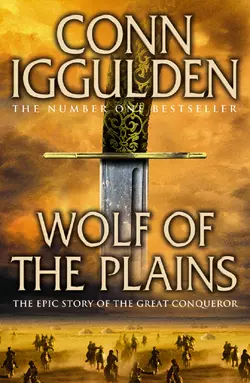Wolf of the Plains

Conn Iggulden
Тип: электронная книга
Жанр: Современная зарубежная литература
Язык: на английском языке
Стоимость: 612.81 ₽
Статус: В продаже
Издательство: HarperCollins
Дата публикации: 16.04.2024
Отзывы: Пока нет Добавить отзыв
О книге: DISCOVER SOMETHING NEW WITH THIS LIMITED-TIME DISCOUNT ON BOOK ONE OF THE SERIES.From the No.1 bestselling author of ‘Emperor’, ‘Wolf of the Plains’, is the much anticipated beginning of the Conqueror series on Genghis Khan and his descendants. It is a wonderful, epic story which Conn Iggulden brings brilliantly to life.′I am the land and the bones of the hills. I am the winter.′Temujin, the second son of the khan of the Wolves tribe, was only eleven when his father died in an ambush.His family were thrown out of the tribe and left alone, without food or shelter, to starve to death on the harsh Mongolian plains.It was a rough introduction to his life, to a sudden adult world, but Temujin survived, learning to combat natural and human threats. A man, a small family, without a tribe was always at risk but he gathered other outsiders to him, creating a new tribal identity. It was during some of his worst times that the image of uniting the warring tribes and bringing the silver people together came to him. He will become the khan of the sea of grass, Genghis.